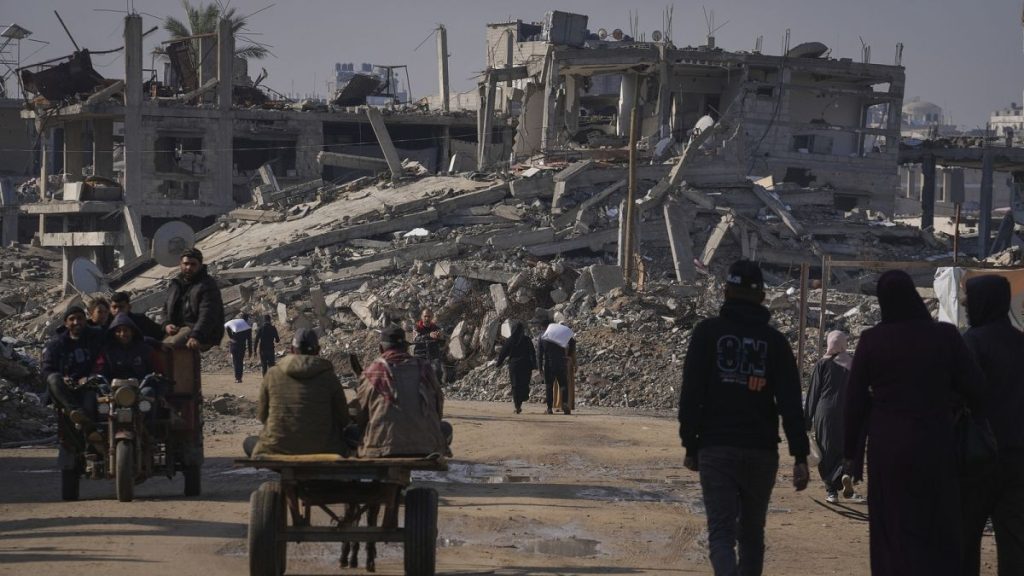The year 2024 witnessed a dramatic escalation in global political violence, marking a disturbing trend of increasing conflict worldwide. Data compiled by the Armed Conflict Location and Event Data (ACLED) reveals a 25% surge in political violence compared to the previous year, exposing one in eight people to conflict and resulting in an estimated 223,000 fatalities. This surge represents a two-fold increase in global conflicts over the past five years, underscoring a worrisome trajectory of escalating tensions and violence. The International Institute for International Studies (IIIS) corroborates this trend, reporting a 37% increase in conflict-related deaths in the year leading up to June 2024 compared to the preceding period. These statistics paint a grim picture of a world increasingly embroiled in conflict, with devastating consequences for human lives and global stability.
Palestine emerged as the epicenter of conflict in 2024, bearing the brunt of intense and pervasive violence. ACLED designates Palestine as the “most conflict-ridden country in the world,” with the Middle East as the “most affected region.” This assessment is based on four key indicators: deadliness, danger, diffusion, and fragmentation of armed conflicts. A staggering 81% of Palestine’s population is estimated to be exposed to conflict, with over 50,000 fatalities recorded in the past 12 months, including the West Bank and East Jerusalem. The daily average of 52 conflict incidents in Palestinian territories underscores the constant threat of violence permeating daily life. The war between Hamas and Israel, which erupted in October 2023, significantly contributed to this devastating toll, with estimates of Palestinian fatalities in Gaza exceeding 45,000 according to the UN and over 50,000 according to ACLED.
While Palestine grapples with widespread violence, the war in Ukraine persists as the deadliest conflict globally. The ongoing conflict, which began in 2022, continues to inflict immense suffering and loss of life. Myanmar, ravaged by internal conflict since the 2021 military coup, holds the grim distinction of harboring the highest number of armed groups. These ongoing conflicts, alongside the escalating violence in Palestine, contribute significantly to the global surge in conflict-related deaths and displacement. The interconnectedness of these conflicts highlights the complex and challenging geopolitical landscape, emphasizing the urgent need for international cooperation to address the root causes of violence and promote peaceful resolutions.
Beyond these major hotspots, numerous other regions face escalating conflict and instability. An estimated 50 countries worldwide are currently experiencing active conflict, demonstrating the widespread nature of violence. ACLED’s Conflict Watchlist for 2025 identifies several “crisis areas” anticipated to experience further unrest in the coming year. These include Mexico and Colombia in the Americas, Pakistan in Asia, and Sudan, the Sahel, and the Great Lakes region of Africa. The watchlist also includes Myanmar, Ukraine, Iran and its allies, Israel, Gaza, the West Bank, and Lebanon, underscoring the potential for existing conflicts to escalate and new conflicts to emerge.
The escalating conflicts worldwide have created a massive humanitarian crisis, pushing millions to the brink of survival. The UN projects that 305 million people will require humanitarian assistance in 2025, largely due to the devastating impacts of conflict and violence. These individuals face immense challenges, including displacement, food insecurity, lack of access to healthcare, and protection risks. The sheer scale of humanitarian need underscores the devastating consequences of conflict and the urgent imperative for increased international aid and support.
Despite the recognized need, the Centre for Strategic and International Studies warns of a likely funding shortfall for humanitarian assistance in critical areas such as Gaza, Myanmar, Sudan, and Ukraine. This potential underfunding raises serious concerns about the ability of aid organizations to meet the overwhelming needs of affected populations. The warning underscores the crucial importance of prioritizing funding for humanitarian aid and upholding international humanitarian law, which mandates the protection and delivery of aid to those in need, regardless of the political context. Failure to adequately fund humanitarian efforts will exacerbate the suffering of vulnerable populations and prolong the devastating impact of conflict.

